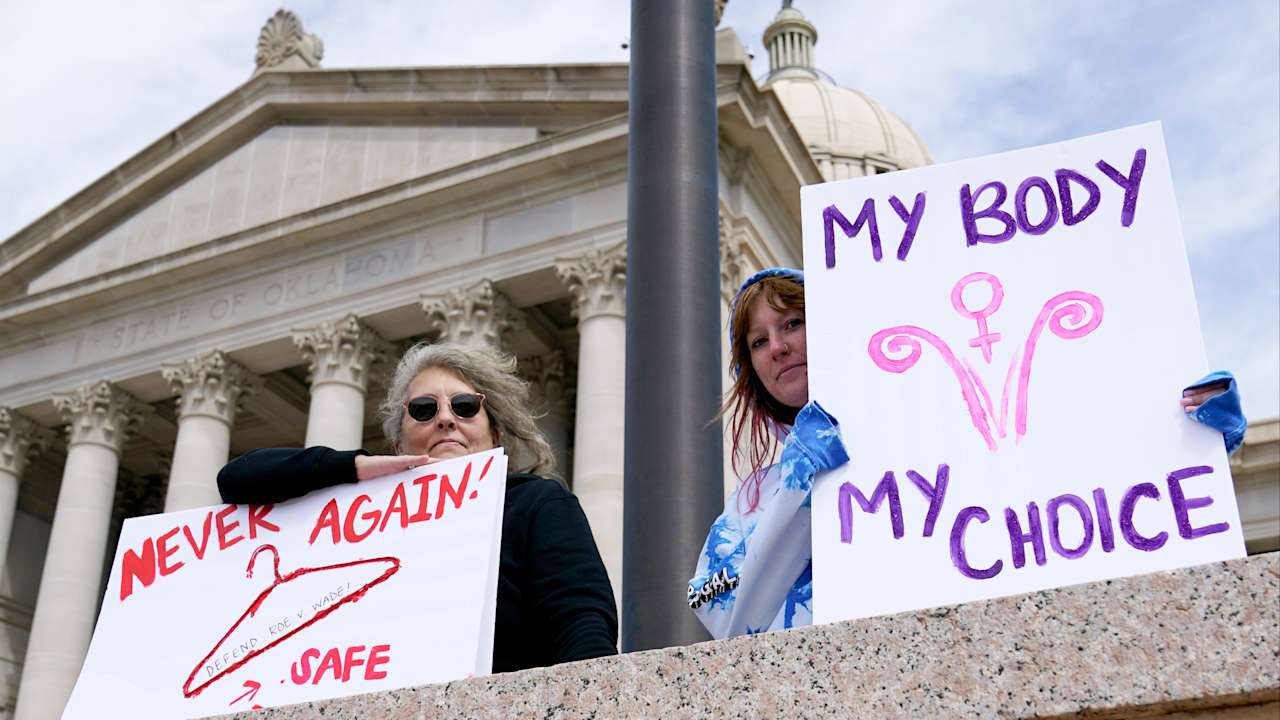More than 64,000 pregnancies happened as a result of rape in the US in the states that totally banned abortion following the overturning of Roe vs Wade in 2022, a study estimates.
A total of 14 states banned abortion entirely, and in those states 519,981 cases of rape led to 64,565 pregnancies in the four to 18 months, depending on area, where the bans were in effect.
Some states have exceptions to the abortion ban in the case of rape, but there are strict time limits on when the abortion must happen and survivors must report the assault to the police.
This disqualifies the majority of rape cases, the study highlighted, as only 21% of people who are raped report the incident to the police.
The study, led by Samuel Dickman, medical director at Planned Parenthood of Montana, and published by the medical journal JAMA International Medicine on Wednesday, involved using a series of data sets to estimate the number of reported and unreported rape cases in states with total abortion bans.
The number of resulting pregnancies was then estimated based on previous research on rape-related pregnancy rates.
The study found that while tens of thousands of women and girls were becoming pregnant as a result of rape, very few, if any, were then able to have legal, in-state abortions, despite the exceptions in place in certain states in the case of assault.
On average there are ten or fewer legal abortions per month in states where exceptions are in place, the study said.
Around 9% of rape-related pregnancies occurred in states with abortion allowances for exceptional circumstances, meaning that 91%, or 58,979 cases of pregnancy, occurred in states without any abortion provisions for those who fall pregnant as a result of rape.
Texas was estimated to have the highest number of pregnancies resulting from rape, at around 26,313, or 45% of the total number across the 14 states included.
Survivors of rape who become pregnant in states with total abortion bans may seek a “self-managed” abortion or try to travel, often hundreds of miles, to seek out a legal abortion, the study said.

These are not viable options for many women and girls, leaving them with little alternative to carrying the pregnancy to full term.
The study did highlight the limitations of its findings, including the fact that the lack of accurate national data on such a stigmatised topic posed challenges in terms of making the estimations.
The overturning of Roe vs Wade in June 2022 was hugely controversial, and was described by US President Joe Biden as “a sad day”. The US Supreme Court ended the constitutional protections for abortion that had been in place for nearly 50 years in a decision by its conservative majority.
Some states have fought hard against the ruling, for example people in Ohio voted to enshrine the right to abortion and other forms of health care in the US state’s constitution in November.
The Supreme Court also voted to preserve access to a widely-used abortion pill in April 2023, but only while the legal case continues so as not to disrupt access to the drug in the meantime.
Follow STV News on WhatsApp
Scan the QR code on your mobile device for all the latest news from around the country
























